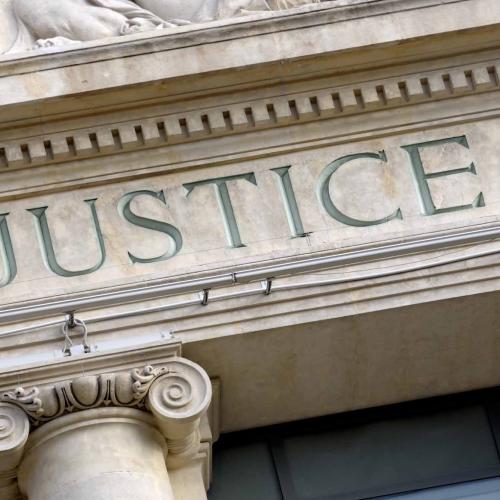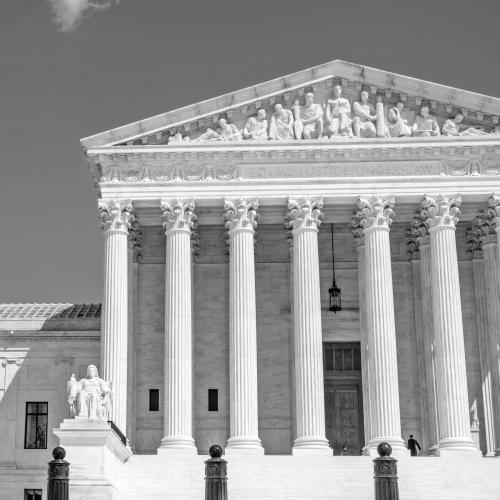In the realm of criminal law, the knowledge held by prosecutors plays a critical role in ensuring justice. The scope and depth of a prosecutor's knowledge influence their actions, particularly regarding evidence disclosure. This article delves into the complexities of a prosecutor's knowledge, examining its impact on criminal cases, the ethical obligations it entails, and the legal standards governing it.
The Scope of Prosecutor's Knowledge
The knowledge possessed by a prosecutor encompasses various dimensions, including factual, legal, and procedural aspects. This knowledge is pivotal in the decision-making process, from charging decisions to trial strategies and evidence disclosure. Understanding the breadth of this knowledge helps illuminate the responsibilities and challenges faced by prosecutors in criminal cases.
Factual Knowledge
Factual knowledge pertains to the details of the case, including the events leading to the crime, the evidence collected, and the statements made by witnesses and the defendant. Prosecutors must have a comprehensive understanding of these facts to effectively pursue justice. This requires meticulous investigation, thorough review of case files, and ongoing communication with law enforcement and other relevant parties.
Legal Knowledge
Legal knowledge involves understanding the laws and precedents that apply to a case. Prosecutors must be well-versed in criminal statutes, procedural rules, and relevant case law to navigate the complexities of the legal system. This knowledge enables them to make informed decisions about charges, plea bargains, and trial strategies, ensuring that their actions are grounded in legal principles.
Procedural Knowledge
Procedural knowledge encompasses the rules and protocols that govern the conduct of a criminal case. Prosecutors must be familiar with the procedures for evidence collection, preservation, and disclosure, as well as the timelines and requirements for filing motions and other legal documents. Mastery of these procedures is essential for maintaining the integrity of the judicial process and upholding defendants' rights.
Impact of Prosecutor's Knowledge on Evidence Disclosure
One of the most significant aspects of a prosecutor's knowledge is its impact on evidence disclosure. Prosecutors are legally and ethically obligated to disclose evidence that is favorable to the defense. The extent of their knowledge about the evidence in their possession, or that could be obtained through reasonable diligence, directly affects their ability to fulfill this duty.
Identifying Favorable Evidence
Prosecutors must identify and disclose any evidence that could exonerate the defendant or mitigate their guilt. This includes exculpatory evidence, which directly supports the defendant's innocence, and impeaching evidence, which can undermine the credibility of prosecution witnesses. The prosecutor's knowledge of the case details and the potential implications of various pieces of evidence is crucial in identifying what must be disclosed.
Reasonable Diligence
The concept of reasonable diligence requires prosecutors to actively seek out and review all evidence that could be relevant to the defense. This obligation extends beyond the evidence already in the prosecutor's possession to include evidence held by law enforcement and other agencies involved in the investigation. The prosecutor's knowledge, therefore, must encompass not only what is known but also what could be known through diligent inquiry.
Ethical Obligations and Prosecutor's Knowledge
Ethical standards play a vital role in guiding prosecutors' conduct, particularly concerning their knowledge and evidence disclosure. The American Bar Association's Model Rules of Professional Conduct and other ethical guidelines emphasize the importance of honesty, integrity, and fairness in prosecutorial actions.
Model Rules of Professional Conduct
Rule 3.8 of the Model Rules of Professional Conduct outlines the special responsibilities of a prosecutor. It mandates the timely disclosure of all evidence or information known to the prosecutor that negates the guilt of the accused or mitigates the offense. This rule underscores the ethical duty to use their knowledge to ensure a fair trial and prevent wrongful convictions.
Honesty and Integrity
Prosecutors are expected to act with honesty and integrity, using their knowledge to promote justice rather than simply secure convictions. This ethical obligation requires them to disclose all relevant evidence, even if it weakens their case. Failing to do so not only violates legal standards but also undermines the ethical foundation of the criminal justice system.
Legal Standards Governing Prosecutor's Knowledge
Legal standards further define the obligations tied to a prosecutor's knowledge, establishing the parameters for evidence disclosure and ensuring that defendants receive a fair trial. These standards are designed to protect the rights of the accused and maintain the integrity of the judicial process.
Disclosure Requirements
Legal standards require prosecutors to disclose any evidence that is favorable to the defendant. This includes both direct evidence of innocence and information that could impeach the credibility of prosecution witnesses. The prosecutor's knowledge of the case and evidence plays a central role in meeting these disclosure requirements.
Timeliness of Disclosure
The timing of evidence disclosure is crucial to ensuring a fair trial. Legal standards mandate that prosecutors disclose favorable evidence in a timely manner, allowing the defense adequate time to investigate and use the evidence effectively. The prosecutor's knowledge of the case timeline and procedural deadlines is essential in meeting these timeliness requirements.
Challenges in Managing Prosecutor's Knowledge
Managing the extensive knowledge required for prosecutorial duties presents several challenges. These challenges can impact the ability to identify, preserve, and disclose evidence effectively, potentially leading to legal and ethical violations.
Volume of Evidence
One significant challenge is the sheer volume of evidence that must be reviewed in criminal cases. High-profile or complex cases can involve vast amounts of documentation, witness statements, forensic reports, and other evidence. Prosecutors must navigate this extensive information landscape to identify all relevant and favorable evidence.
Interagency Communication
Effective communication between prosecutors and law enforcement agencies is critical for comprehensive evidence management. Miscommunications or lack of coordination can result in crucial evidence being overlooked or not disclosed. Ensuring that prosecutors have full knowledge of all evidence collected by law enforcement is essential for fulfilling disclosure obligations.
Resource Constraints
Limited resources can also hinder a prosecutor's ability to manage their knowledge effectively. High caseloads, inadequate staffing, and insufficient access to technology can impede thorough evidence review and timely disclosure. Addressing these resource constraints is vital for ensuring that prosecutors can meet their legal and ethical duties.
Mitigating Challenges and Enhancing Prosecutor's Knowledge
Addressing the challenges associated with managing prosecutorial knowledge requires a multifaceted approach, including enhanced training, improved interagency collaboration, and better resource allocation. These measures can help ensure that prosecutors have the knowledge they need to fulfill their obligations and uphold justice.
Enhanced Training
Providing prosecutors with comprehensive training on evidence management, legal standards, and ethical obligations is crucial. Training programs should cover the identification and disclosure of favorable evidence, the importance of reasonable diligence, and the procedures for maintaining evidence integrity. Ongoing education helps ensure that prosecutors remain current with evolving legal standards and best practices.
Improved Interagency Collaboration
Strengthening communication and coordination between prosecutors and law enforcement agencies can enhance the management of prosecutorial knowledge. Establishing clear protocols for evidence collection, sharing, and review can help ensure that all relevant evidence is identified and disclosed. Regular meetings and joint training sessions can also foster better understanding and cooperation.
Resource Allocation
Allocating adequate resources to prosecutorial offices is essential for effective evidence management. This includes providing sufficient staffing, access to technology, and funding for training and professional development. Ensuring that prosecutors have the tools and support they need can help mitigate the challenges associated with managing extensive knowledge and fulfilling disclosure obligations.
The knowledge held by prosecutors is a cornerstone of the criminal justice system, influencing their actions and decisions at every stage of a case. Understanding the scope and impact of this knowledge is crucial for ensuring that prosecutors fulfill their legal and ethical obligations, particularly regarding evidence disclosure.
By addressing the challenges associated with managing prosecutorial knowledge and implementing measures to enhance training, interagency collaboration, and resource allocation, the criminal justice system can uphold the principles of fairness and justice. Ultimately, the integrity of the judicial process depends on the diligent and ethical use of prosecutorial knowledge.



